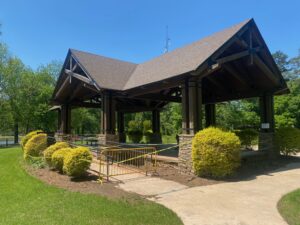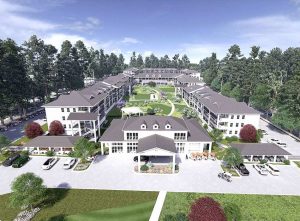Midwest Food Bank, a faith-based agency which collects food donations from companies and distributes it to local non-profits and disaster sites at no charge, is coming to Peachtree City.
Midwest has purchased a warehouse on Parkade Court in the city’s industrial park. The operation is ramping up to have its first monthly food distribution on Tuesday, Oct. 25.
Midwest will be working with 10 different agencies for its first several distributions of the year, said Linn Stoller, who is serving as the executive director for the local site. Midwest has three other locations in Bloomington and Peoria, Ill., and also in Indianapolis, Ind.
“Our goal is to take in food from various sources and turn it around and deliver it at no cost to other agencies that deal directly with families,” Stoller said.
Stoller’s involvement with Midwest Food Bank came after he and other members of a small church in Fairburn began praying for a way to help the community through an outreach program. Shortly after, a friend of Stoller’s contacted him about starting a Midwest Food Bank location here.
It also happened that Cathy Berggren of the Dogwood Church Real Life Center informed Stoller that she had been praying for another food bank to come to the southside of Atlanta, Stoller said.
“We were looking for a project or outreach that we could get the community involved in, with a more longer-lasting impact day in and day out,” Stoller said.
The food bank’s Peachtree City location came at “a God-given price” because it had gone into foreclosure, Stoller said. But the building needs a loading dock built for it to avoid the repeated use of forklifts to unload trucks.
Midwest Food Bank is a faith-based organization, and for three weeks of each month it will amass the food donations before using the fourth week for distribution to local food pantries in the area. A number of volunteers will be needed, and they can contact Stoller at [email protected].
“We welcome folks to come by and visit the site and get a glimpse of what we are trying to do,” Stoller said. “We are helping to bridge the gap between those who have a need and those who have an ability to supply that need.”










Leave a Comment
You must be logged in to post a comment.